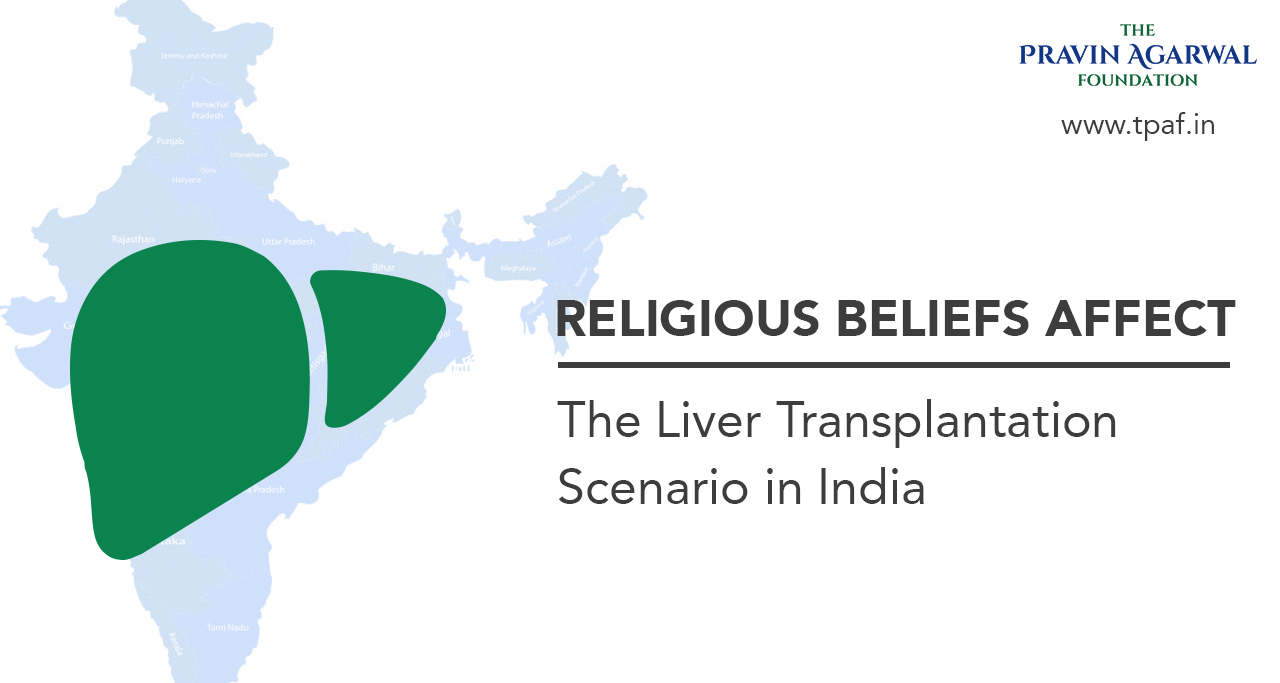Latest Update
Blogs

October 1,2019
/ adminHow Religious Beliefs Affect the Liver Transplantation Scenario in India?
Today, Indians are fast making a mark in every sphere of life globally. But yet, the interplay of religion, faith, and wider culture attitudes place obstacles in the way of life-saving breakthroughs and procedures. Take the case of liver transplant in general and pediatric liver transplantation (PLT) in particular.
Besides cultural, social, and educational issues, religious beliefs are playing a critical role in influencing the attitude towards pediatric liver transplantation much more than the physician’s beliefs.
A classic example of this is the healthcare hub Tiruchi – known for its extensive popularity in medical research purpose and in religious customs alike. Even with its leading position in healthcare and clinical research, the city lags behind others in organ donation and transplantation surgery.
The key factor behind this trend is the perceived bias and religious belief in the city around organ transplant. Perhaps this is why the number of liver transplant procedures is yet to pick momentum in Tiruchi.
A look at PLT in India
In India, thousands of children suffer from liver diseases. As per research in November 2017, 3000 children are in need of pediatric liver transplantation in India but less than 150 surgeries are actually being performed every year.
The reasons behind this wide gap include delayed diagnosis and referrals and concerns regarding its long-term success. Also, the financial burden on the family and the religious beliefs of the people in and around Tiruchi ensure that many cases of pediatric liver transplantation go unreported and untreated. Their religious beliefs don’t allow them to accept the liver from the other religion’s donor.
Myths about Pediatric Liver Transplantation Scenario in India
There have been a lot of misconceptions regarding the basics of pediatric liver transplantation and liver donors. Let’s look at these myths of liver transplant one by one.
Myth-1 Only Adults Need Liver Transplantation
Fact- According to pediatric specialists, they see thousands of children from infants to teens that suffer from several forms of liver diseases and require pediatric liver care in India. The major causes of liver diseases in children are genetics, viruses, and blockages in the flow of bile from the liver.
Myth-2 If You are Rich or Celebrity, Your Child Can Move Up Waiting List More Speedily
Fact- Here you are completely wide of the mark. Your child will be placed on the waiting list based on the severity of illness, time spent waiting, match potential, and blood type. Your income or social status won’t be taken into account in the allocation process. If you can’t afford the cost of PLT procedure, there are NGOs for liver transplantation India such as Milaap that offers partial or full sponsorship of the mandatory expense for administering the PLT.
Myth-3 My Religion Doesn’t Support Organ Donation or Acceptance
Fact- Most major religions in India support organ and tissue donation and acceptance. Usually, religions view organ and tissue donation and acceptance as acts of charity and noble deed. So, don’t hesitate to register as an organ donor. It gives you a chance to serve humanity.
Myth-4 Certain Optimal Age and/or Weight is a must for Successful PLT
Fact- This kind of perception is not right. There is no optimal age and/or weight prerequisite for successful pediatric liver transplantation. Today, technologies are improving. Because of technological upgrading and improved experience, doctors can perform surgery on infant too.
As per the article published on ScienceDirect, in India, the first successful pediatric transplant was performed on a baby boy who was suffering from EHBA. As per the SPLIT data, the doctors have performed 33.5% successful PLT before children’s first birthday and 9% before the age of 6 months.
Myth-5 Patients and Donors Need to Be Have the Same Blood Group
Fact- It is not true. The requirement for the successful PLT is that the child and the donor should have a well-matched blood type. But, there is no compulsion for the same blood group. It because every blood group has some form of compatibility with other blood groups. For example, AB+ blood group is considered as a universal blood acceptor so they can accept organ or blood from the A, B, and O blood group people.
Myth-6 A Donor will be Dependant on Medications for His/Her Entire Life after the Liver Transplant
Fact- Again, it is not true. Medications are only required to recover after the transplant. But, it is totally a temporary case until the donor’s body makes a complete recovery. Once the donor is fully recovered there is no need for medications.
Myth-7 It is Important to Get a Liver from a Living Person Rather Than a Dead Person
Fact- It is not essential that PLT can be performed successfully only if a child gets a liver transplant from a living person. There have been many cases in India where a dead person’s liver was used in the pediatric liver transplantation process. The only thing required is that the source and destination would have to be compatible. This is prerequisite for liver transplantation from living as well as a dead donor.
Signing Off
Engaging faith leaders and providing people precise, crystal-clear, and in-depth information about the organ donation and transplantation is much needed in India these days. As today, in India, there are some of the above-discussed common myths around PLT and liver donation. Be aware of these misconceptions and make the right decision before going for a PLT for your child.
You can also Join Our TPAF Facebook Group – The Pravin Agarwal Foundation (TPAF) Support group, created to form a network of families/caregivers of children who suffer from Liver Disease. We would request to join the platform to share experiences & concerns, provide emotional & social support and encourage one another in this journey.
 Donate
now
Donate
now



Related Posts
Aayush Jadav- A Remarkable Journey of Hope
moreKaivalya Mayane- A Remarkable Journey of Hope
moreVendant Joshi- A Remarkable Recovery
more